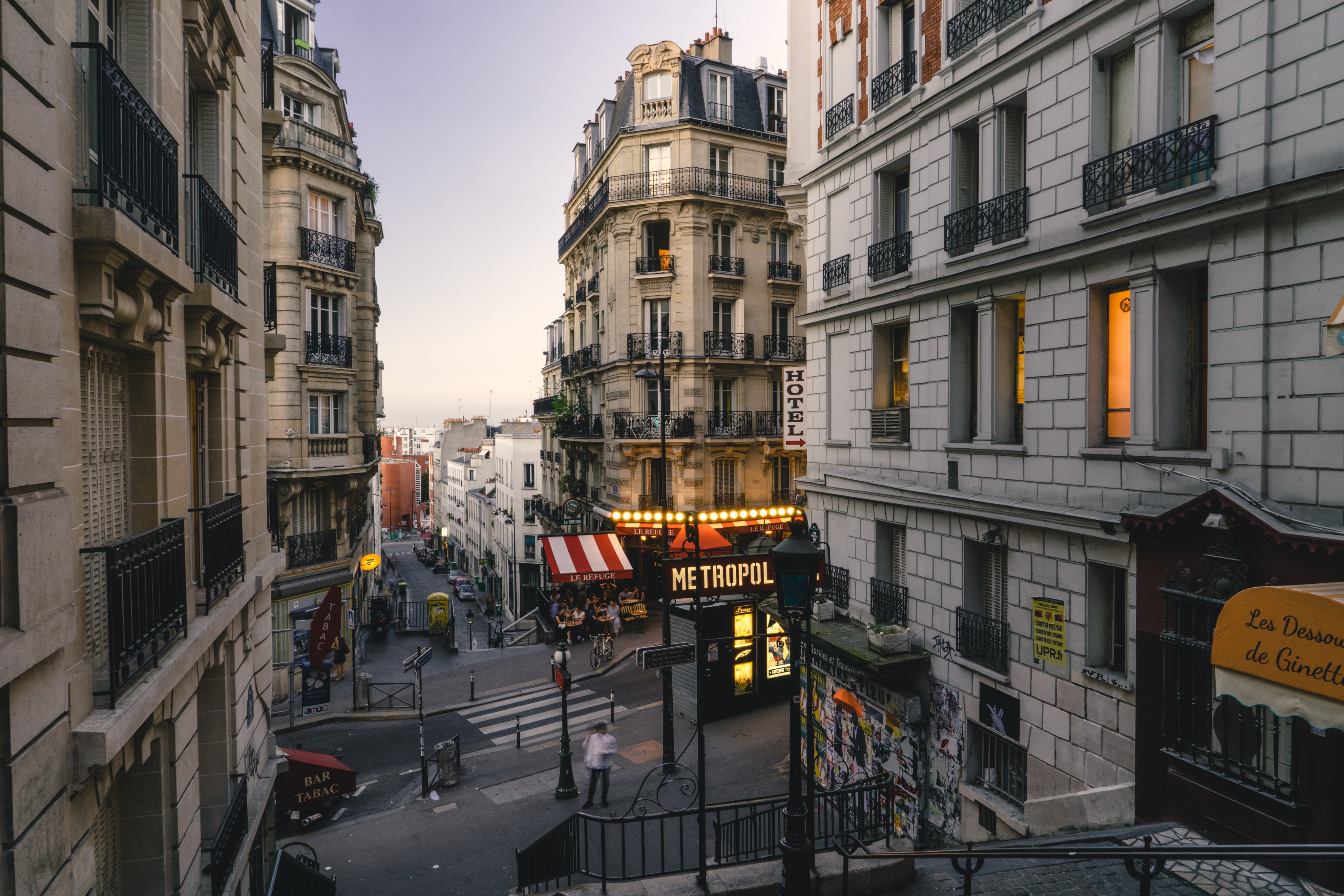Bonjour, ça va?, Merci
Like a lot of people, is this all you can remember from those dreaded days in french class back at school? No matter where you are from, if French is not your first language alors oui, it is very difficult. Here at Franglaisadventure we have you covered with surviving the top French clichés. We’ll make sure you are not in some super embarrassing situation where you’ve been asked a question and then your cover is blown. Where its game over and every local now knows you are a tourist. I don’t know about you but I don’t like standing out and I try anything to blend in, even if it means not speaking a word. That said, take a look at our mini-guide and there’s a chance you’ll even convince yourself that you could be French!
Sundays!
No milk? or in desperate need of something from a local shop? Well, you’ll have to wait till Monday. Most businesses are closed on Sundays and it’s a custom in all of France. Except for baguettes, apparently, bakeries are still open on Sundays. This is something that can be a little difficult to first come to grips with especially having an Americanised frame of mind. 24-hour shops do exist but are frowned upon but in one way, I do think it’s quite nice that towns, roads and streets tend to be a lot quieter for at least one day of the week. Just make sure you get what you need beforehand!
Numbers
Personally, I can only count to around… 69 and there’s a reason for that. Numbers after 70 tend to get a little weird and from an English perspective, it makes no sense. The pattern in which the way numbers are pronounced is the same as the English numerical system but then for some reason, it feels like you have to start saying random numbers the closer you get to 100. I mean, the number 80 for example is pronounced “quatre-vingts”, and yet 4 is also pronounced quatre and 20 is also vingt, so 4 + 20 = 80? Not only do you need to pronounce two other numbers just to be understood that you mean one number, but that you need to somehow solve this made-up mathematical formula!? If you think that’s bad, it gets worse. 94 for example is “quatre-vingt-quatorze”. So now we are going 4 + 20 + 14 = 94! I promised myself that one day I will get the hang of it but it’s worth mentioning how bonkers this is.
Kisses
Okay, we all know that it’s a custom in France that when French people greet each other they tend to kiss on the cheeks. Firstly I’ll admit that this is only done when among family or friends and that you don’t necessarily kiss each other on the cheeks but rub your own cheek against the other person and pretending to kiss. Ermm.. yeah, anyway we all know the French do it, but until it happens to you as an outsider, it’s a very strange but warm greeting. Oh and to also mention and this one I really can’t keep up with is that the number of “kisses” exchanged will depend on where you are in France! This is never one I can get right and just when I think I know the correct amount of kisses expected I always put too many in and come off as over-affectionate!

Baguettes
The French will do almost anything to get their daily baguette. No joke, I’ve personally seen a man park his car on a busy roundabout in Paris or rather abandon his car to then quickly cross the road just to get to the bakery. They even have vending machines just for baguettes! So not only are they available 24/7, but that they are a top priority in France. Rain, snow, or shine, the French will still go out in all conditions to get their beloved piece of bread. It’s so loved in France that the national symbol of the country is a rooster when it really ought to be the baguette.

Drink Hot Chocolate/Coffee in bowls
I thought it was just Lucie’s household that did this in the mornings for breakfast but it turns out that in most homes they drink hot chocolate particularly in bowls. Coffee does depend on what type they are drinking as they will drink this in a small cup. Either way, drinking any hot beverage in this way is seen as odd from an English perspective. However, after a long day skiing in the Alps, drinking a large bowl of hot coco doesn’t seem like a bad idea!

Wifi
Yes, Wifi does exist in France, don’t panic. However, you know you’ve been in France for too long when you start changing your pronunciation of the word. The way in which the French pronounce Wifi is like it’s a well-known brand of some sort. You know like; “Have you got any Wifis?” or “Did you the latest Wifi?”. Well to me anyway. When you first hear a French native pronounce it, your anglo mind might cause you to giggle.
Watch Your Step
Looking ahead at where you are going isn’t the only thing that needs your attention in France. Watch your step on those pavements and footpaths. If you have ever been to France, you’ll probably know what I mean and for those of you that don’t, I mean poo! Presumably and hopefully dog poo. For some reason, French pavements are notorious for the amount of dog mess. Most of the time, this problem tends to be in all cities but villages do tend to be quite clean. As with every city and town, dog fouling is everywhere but in France, you’re sure to notice it more. For the French, however, they don’t need to look down as they walk, for them it appears they have an inbuilt system that makes them avoid dog mess, hence maybe the reason why they feel they don’t need to pick it up.
Strikes
The French know their legal rights better than anyone else in the world. In fact, I’ve always had the impression that the French Revolution never did end; it’s just been on and off ever since 1799. You could say that it’s a way of life for the French and they will strike about absolutely anything. You can bet that when the President makes a decision, they are always bracing themselves for a strike. My advice to you as an outsider in France is; when around police ditch the Hi-Vis, you don’t want them mistaking you for the “Gilet Jaune”!

Tolls
This is normal in most European countries and France does have a lot of toll roads. Unlike the UK, most of these roads are owned by companies rather than the government, however, if you’re driving through France, have some spare change at the ready. You can, for the most part, avoid the toll roads but of course, it will add a couple of hours to most journeys.
There you are! You now know the basics of surviving in France. Bonne chance et à bientôt!




